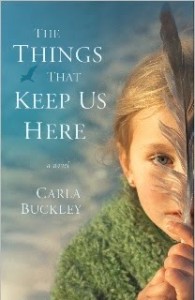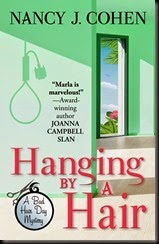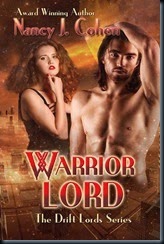
by Carla Buckley
Thank you to The Kill Zone authors for letting me sidle in here today, and thanks especially to John Ramsey Miller for hauling out the soapbox and giving up his day to me, and for the many ways he’s championed me these past months. One of the things I’ve been delighted to learn on my path to publication is that although thriller writers create the stuff of nightmares, they themselves are the kindest, most generous people around. Maybe it’s because they get all the ugly stuff down on paper and all that’s left is the good stuff.
My debut novel is about to be published. After writing full-time for fifteen years, working hard at my craft and producing seven novels (four of which were agented), I would have thought I knew a thing or two about the publishing business. But the only thing I’ve learned as my publication date approaches is how very little I know. Take for example, the concept of genre.
When I submitted The Things That Keep Us Here to my agent, she cautioned me. “I’m not quite sure where it fits. It’s part family drama, part thriller, part dystopian novel.” “Oh,” I said, brightly. “That’s not a problem, is it?”
I laugh at my naïve self. I truly do.
In order for an agent to pitch a project, she has to know what she’s selling so she can find the right editor. In order for an editor to drum up in-house enthusiasm, she has to know how to describe to sales, marketing, and publicity, what it is they’re going to be supporting. In order for those various departments to reach out to their various markets, they have to know what they’re pushing. In order for bookstores to buy in, they have to know where they’d shelve the book, so that in turn, the right readership can find it. Then we can all live happily ever after.
The thing is, I didn’t really know what I’d written.
I’m a huge mystery reader and so I started off by writing traditional mysteries featuring, in turn, an art investigator, a female firefighter (the research for that was fun), and a female implosion expert. It wasn’t until I became consumed by media reports that mankind was due for another pandemic on the scale of the 1918 Great Influenza Pandemic, that I threw mysteries aside. I wrote instead about a family caught up in a pandemic and it unraveled directly from my heart. Try explaining that to your agent.
“Well,” I said. “You sure it isn’t a thriller?”
“Not quite,” she said.
It wasn’t until it landed at Bantam Dell that my novel, whatever it was, found a home. My editor, who specializes in thrillers and mysteries, agreed: “This isn’t a thriller. It’s cross-genre, both family drama and thriller. It’s new.”
The last thing I wanted to do was sound stupid to my editor so I said, “Oh.” As if I understood exactly what she was saying. Was it because most of my action takes place within one family’s home, instead of sprawling across the world, taking the reader from the White House to the Kremlin to German scientists feverishly working on a cure? By telling the story from one family’s perspective, and therefore playing out the drama of a pandemic threat in every reader’s own living room, I thought it would make the ride that more thrilling. Don’t other thriller writers do the same thing–focus their story so intimately on the characters involved that you’re helplessly caught up in the story? Maybe it’s because I give equal weight to the thriller part and to the family part. Maybe that’s what makes me a hybrid.
I’m not the only author straddling two genres. As a member of the ITW Debut Author Program, I’ve gotten to know some other debut authors who are facing the same quandary: releasing a book that doesn’t quite fit onto one genre shelf. How their publishers handle finding a place for them in the book world varies, with some books being pushed closer to one category than another. It’s a bit nerve-wracking to watch cover art and titles adjust to reflect a dual personality, and it’s a learning process for everyone involved. My own novel was submitted under the title, Flu Season, and went through numerous incarnations before settling into The Things That Keep Us Here.
I’ve come to think that cross-genre is yet one more demand on the current publishing model, a world that is learning to adjust to ebooks, nontraditional publishing modes, social networking, and so on. As the world moves to a faster rhythm, how do publishers cut through the noise to position their products, and doesn’t having an unusual product make that process more difficult? Aren’t cross-genre books a bigger risk for authors and publishers and booksellers, alike?
An unpublished writer contacted me recently. She’s in the process of submitting a mystery to agents, and while waiting to hear back, has ideas for various other projects that intrigued her, some of which are hard to categorize: middle school vampire story verging on YA, women’s fiction with an element of horror.
“Do you have to stick to one genre?” she asked me. “Can’t I just mix it all up?”
What do you think I should tell her?





